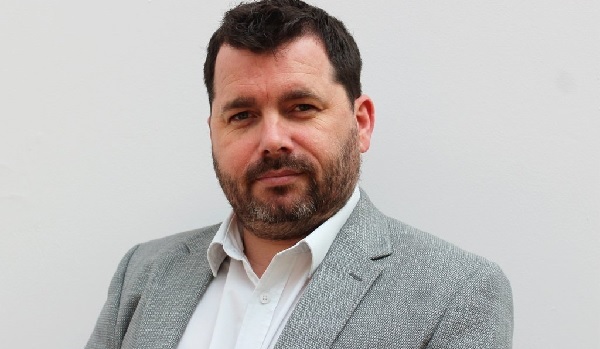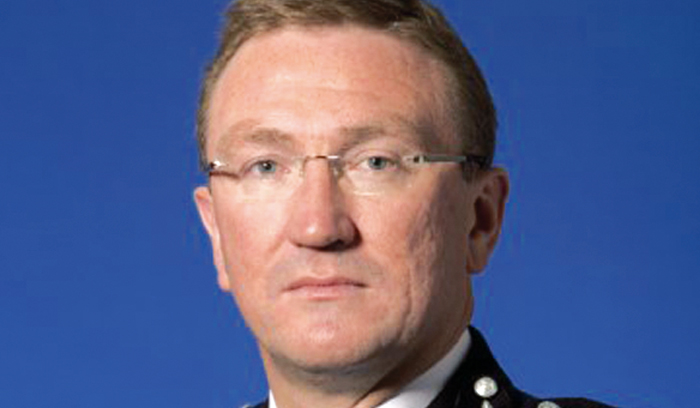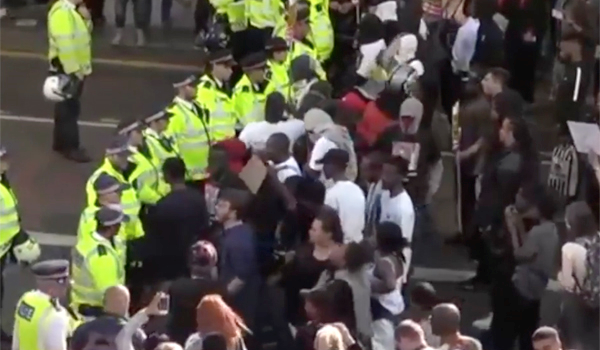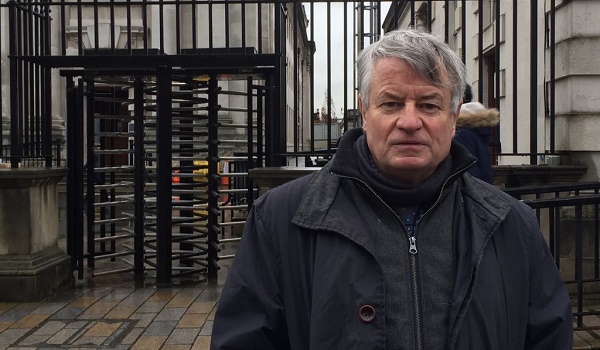Officer ‘was right’ to share killer Wayne Couzens’ defence with colleagues
A senior member of the Police Federation of England and Wales (PFEW) has told a misconduct hearing that an officer who shared details of murderer Wayne Couzens’ defence with colleagues via a messaging app was “absolutely right” to do so.
Sergeant Simon Kempton, of Dorset Police, was on secondment serving as treasurer of the federation when Couzens abducted and killed Sarah Everard.
Following Couzens’ first court appearance on March 13 last year, Mr Kempton was given details of claims he made in his police interview by a Daily Mail journalist.
The officer is now facing misconduct proceedings for “gossiping” with senior PFEW figures about the case on messaging app Signal.
The messages detailed Couzens’ false claims he had abducted Ms Everard and handed her over to a gang of eastern European men in order to pay off a debt.
One of Mr Kempton’s messages began: “Wait until you hear what his defence was.”
An officer replied: “I guess he will try and top himself before he gets to trial.”
Police Constable Alex Duncan, national secretary of the federation, was one of two officers who referred Mr Kempton’s messages to the Metropolitan Police Service.
Giving evidence at the misconduct hearing at Dorset Police Headquarters on Tuesday (February 22), PC Duncan said he has now reversed his position and believes Mr Kempton made “absolutely the right call”.
He said he believed the information came from a leak in the MPS’s murder investigation and had not realised it had been disclosed in court.
The panel saw messages between PC Duncan and PC John Partington, in which PC Partington remarked: “The only thing that I can see is that this has come from his (Couzens’) remand hearing and I hope that is the case.”
In his reply, PC Duncan said: “Surely if that’s the case it would have been reported in the press?”
PC Duncan said he later learned it would have been an offence for the press to publish evidence before the trial.
Asked why he had not just asked Mr Kempton where the messages came from, he replied: “The logic was that if there was a leak in the evidence trail that needed to be followed by the Met, then it didn’t feel right that we were making direct contact with part of that chain.”
When he learned the information had come from a journalist, PC Duncan changed his view and agreed it was “absolutely the right call” for Mr Kempton to share it with colleagues.
He said the information would have had an impact on the Police Federation’s comments to the media or any decision as to whether to fund Couzens’ legal team.
“It was the biggest story ongoing at the time, it involved one of our members, it was understandable there was public uproar, our members were in shock,” PC Duncan said.
“We needed to be across it and across it quickly, we needed to be clear how we were going to deal with it if there was a request for (legal) funding, and what our stance was going to be if we were approached for any lines either directly or indirectly.
“It was not just about the individuals in this case but also wider issues in policing such as misogyny, ethics – it is fair to say that anyone in the (Police Federation) executive would have been involved in a number of those conversations.”
PC Duncan said PFEW may have helped fund Couzens’ defence if he had denied the offences.
“If you have a man who point-blank claims he has done nothing wrong whatsoever, as one of our members that we represent they are very much innocent until proven otherwise. We would make sure our media lines reflected that.”
PC Duncan added: “One of the things that became clear was that we couldn’t push this into the long grass ‘in light of ongoing proceedings’ because there had already been an attempt (by Couzens) at self-harm.”
He said there would have been a “media frenzy” with all reporting restrictions lifted if Couzens had been successful in killing himself and the federation needed to have its comment prepared.
Mark Ley-Morgan, presenting the case for Dorset Police, described the tone of the messages as “gossiping”.
Mr Kempton is accused of breaching standards of police professional behaviour concerning respect and courtesy, duties and responsibilities, social media use and confidentiality.
It is further alleged his actions had the potential to undermine confidence in the police.
The misconduct hearing is due to conclude by Friday.







